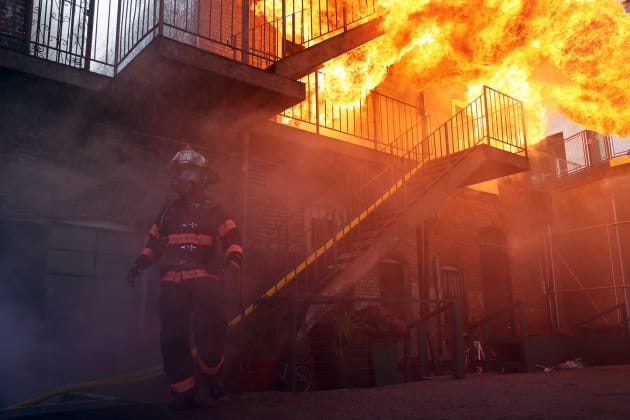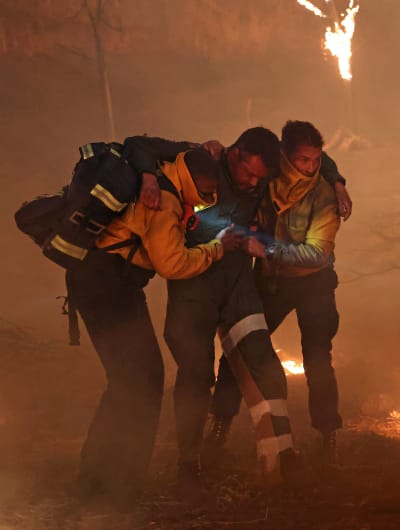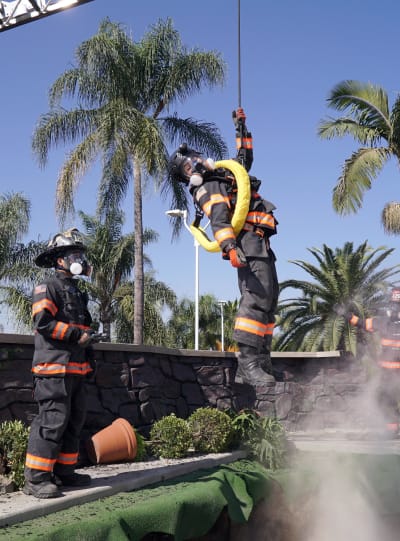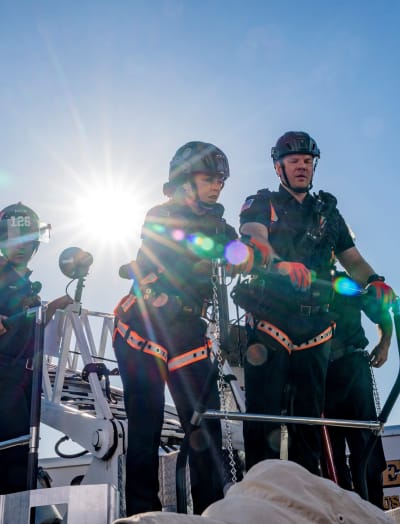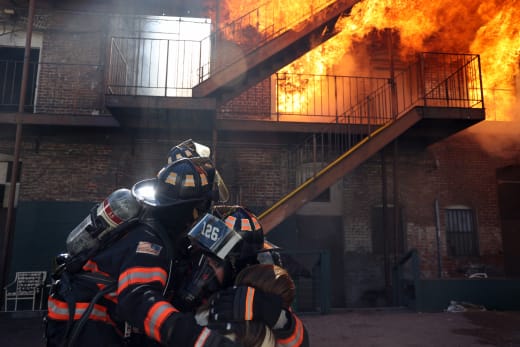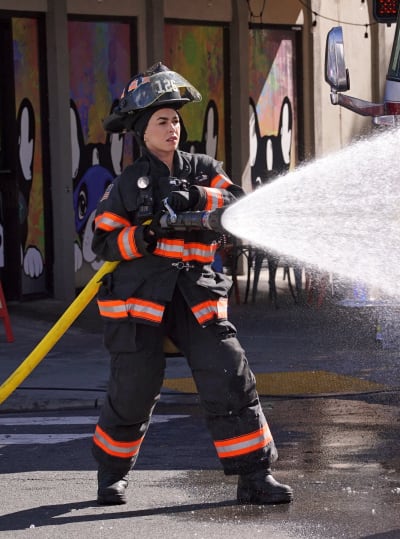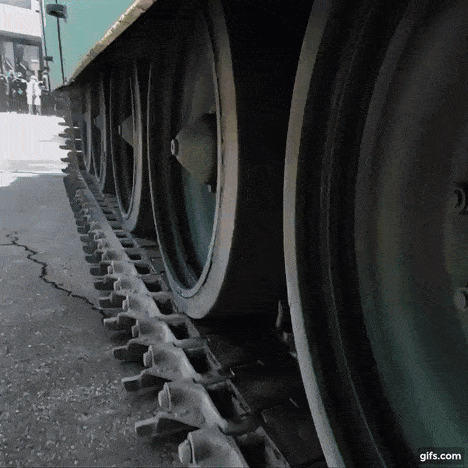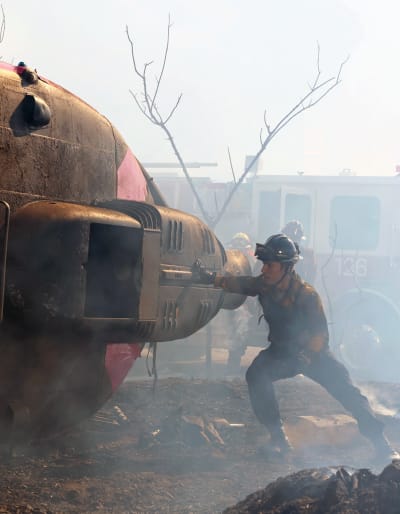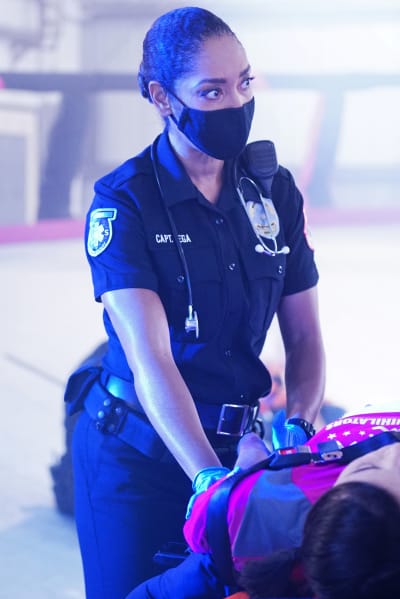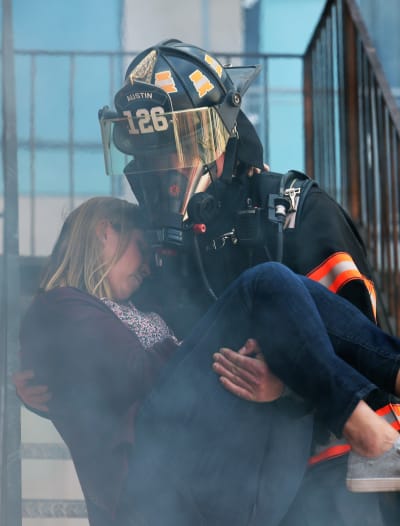One of many things 9-1-1 Lone Star does is deliver impressive action sequences, cinematography, and so many exciting shots.
You can say that it is a perk of a series that focuses on harrowing saves, wildfires, and runaway tanks.
Lone Star’s most impressive feat to date was 9-1-1 Season 2 Episode 3, the epic crossover event with 9-1-1 that felt like something ripped out of an action film.
TV Fanatic caught up with Andy Strahorn, 9-1-1 Lone Star’s Director of Photography. He has previously worked on notable shows such as Lethal Weapon, Westworld, and Fear the Walking Dead.
But we got to discuss what life is like behind the camera bringing us some memorable shots.
Check it out below!
Essentially, your goal as DOP is to execute and capture the vision and translate it on screen. What drew you to this field? Did you always want to get into this line of work?
I grew up in a small town in the Australian Outback, and when I was 8-years-old, I saw The Empire Strikes Back in our local movie theater, and I knew I wanted to work in film.
My first job in film was cleaning up the theater, and I worked my way up to becoming a projectionist, and then I started making my own films.
I was able to teach myself about lighting by watching movies.
Can you speak about your role on Lone Star and your many tasks?
And how is your experience on Lone Star different from previous shows?
My role as a cinematographer on Lone Star is similar to most, which is telling a story.
But this show is much more action-oriented. Lone Star is based in the world of fire, and fire is an integral part of the show.
It is such a high-octane series. What was your reaction when you found out about runaway tanks, roller derby impalements, and that massive wildfire?
It feels like season two has gotten bigger and better, but I imagine that has also been challenging for you!
Every time I look at an episode, I always wonder how we’ll film the fire scene! Each set piece is met with a big “wow” from everyone, and then reality dawns on us, saying, “Oh, wait… we have to film this!”
It’s all about problem-solving. We make sure all personnel on set are safe with the proper equipment and gear.
I’m in a Facebook group for the series, and some fans could not stop talking about the scene when Owen faced down the tank and how it had them on the edge of their seats when it stopped just in time.
Can you walk us through the process of capturing that?
Rob is a really great sport. He came onto the set and had no problem stepping in front of the tank.
We used Dollies and drones instead of steady cams where the camera collapsed into the action. It’s important to know that actors are always in a safe place and a safe distance from the fire.
The crossover event was one of the best episodes of the series. It was so thrilling, and I mentioned in my review that it felt like watching a war action movie — that sort of hazy filter that gave the sense of suffocating smoke and heat almost claustrophobic, the abandoned chopper, the mine…
Everything was so charged and visceral.
How long did it take to perfect that event? How do you come up with all of these details to evoke so much feeling from the audience?
It was transformative — it felt like we were in the thick of it too. My process is reading the episode’s script over and over again the day of shooting.
As the stakes get higher, the choices become more deliberate in terms of camera angles, color, and atmosphere.
I know your goal this season was to capture the adrenaline of every moment effectively. What has been your crowning moment of glory and proudest achievement so far on the show?
I am very proud of the wildfire sequence. We had a huge amount of landscape to create the illusion of danger. There were so many shots filled with depth, and it all came together.
Can you tease us with what other big emergencies and things we can expect this season?
There are so many scenarios that are about to happen, and you cannot prepare for any of them! Each episode is bigger than the last.
On a lighter note, oddly enough, something unexpectedly polarizing among viewers is Lone Star’s signature color filter!
For the critics, what’s the motivation behind using it? What tone is it meant to set?
We wanted to give Lone Star a feeling of its own, as it is a standalone show. I decided to give Texas copper tones during the day because it is so dry and hot. We use silver tones at night.
9-1-1 Lone Star returns April 19 at 9/8c.
From the looks of the promo, Strahorn and his crew had another ambitious task, with the beloved Ryder couple careening over a guard rail and plunging into the water.
We’re eagerly awaiting the show’s return.
Check out the promo below.
And if you want to relive the first half of the season, you can watch 9-1-1 Lone Star online here via TV Fanatic.
[embedded content]
Jasmine Blu is a senior staff writer for TV Fanatic. Follow her on Twitter.
